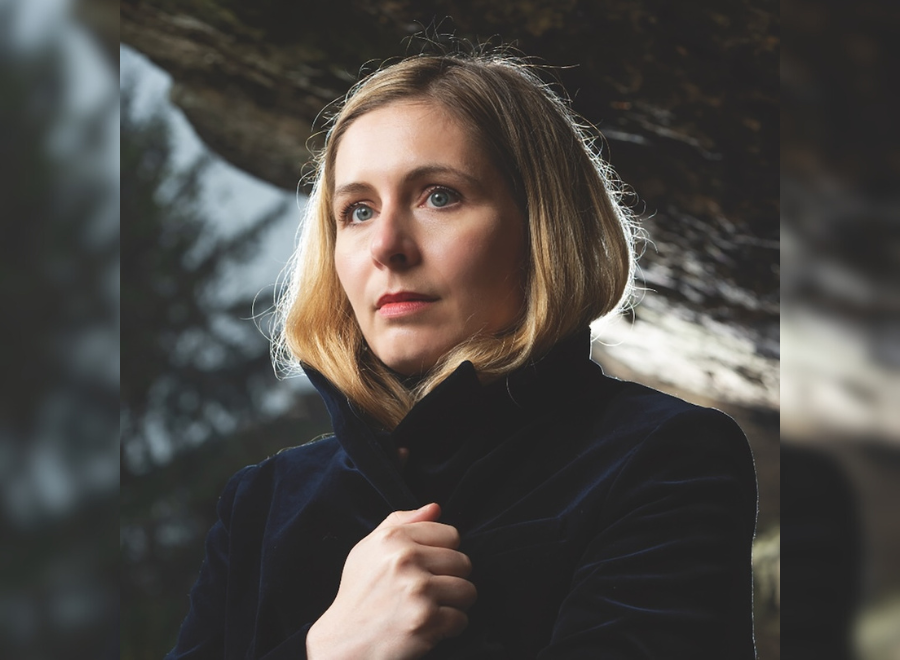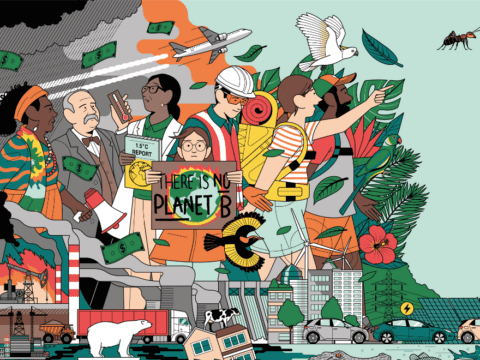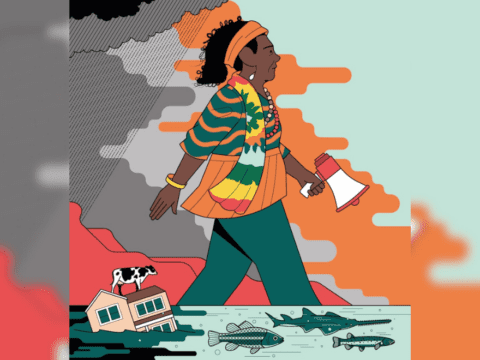In 1978, the American theologian Walter Brueggemann published a slender, pointed book about the biblical prophets whose revolutionary imagination he believed was sorely needed now to awaken a culture numbed, subdued and satiated by an ethos of consumerism. The prophet, said Brueggemann, had two tasks: to criticize the dominant consciousness and to imagine an alternative.
In recent decades, a prophetic genre has emerged in literature. Cli-fi — climate fiction — imagines our future or reimagines our present in light of the many ways humans are devastating the delicately balanced life systems of our planet. Cli-fi can be dystopian (Margaret Atwood’s Oryx and Crake), exhortative (Kim Stanley Robinson’s The Ministry for the Future), elegiac (Jessie Green-grass’s The High House), intersectional (Octavia Butler’s The Parable of the Sower) or panoramic (Annie Proulx’s Barkskins).
You may unsubscribe from any of our newsletters at any time.
Two new novels by Canadian writers enter this canon: Birnam Wood by Eleanor Catton and Wild Hope by Joan Thomas. Both fit a subgenre I would describe as “literary climate thrillers.” (Li-cli-thri? Perhaps not.) “Literary” because both books do what literary fiction does well: address social and political realities using multi faceted characters, pregnant symbols and burnished prose; and “thrillers” because the authors use conventions of genre fiction to keep the pages briskly turning.
It’s not unusual for accomplished writers to take genre devices — cliffhanger plots, stormy romances, intergalactic intrigues — and bend them to literary ends. See every Atwood novel. Thomas and Catton both won major awards for their previous books (Catton’s cleverly wrought The Luminaries earned the Booker Prize in 2013, and Thomas’s empathic and eviscerating Five Wives won a 2019 Governor General’s Award), but this time they both end up sacrificing some of the literary form’s prophetic power in pursuit of accelerating plots.
Every crime thriller needs a villain, and each of these novels finds theirs in a bad-boy billionaire hell-bent on wringing every drop of bottleable water or rare-earth metal from a swiftly tilting planet.
More on Broadview:
- Is Canada ready to play its part in the global climate refugee crisis?
- Muslim women authors build new worlds through sci-fi and fantasy
- Author Emma Donoghue on the power of queer love stories
Wild Hope is framed as a mystery. Jake, a sensitive artist who carries the weight of the Earth on his shoulders, goes missing on page one. He is tangled in an ideological struggle with his climate-denying politician father and his childhood friend, Reg Bevaqua, now an arch-capitalist who makes his billions by sucking up aquifers in India. Could Bevaqua have something to do with Jake’s disappearance?
Birnam Wood gathers its narrative momentum not from an unsolved mystery but from skillfully engineered cause and effect; each of the protagonists’ morally fraught decisions unleashes the next. It all starts when Mira, an idealistic but fallible activist, accepts funding for her guerrilla gardening collective from a deftly sketched sociopath who specializes in surveillance drones. Unbeknownst to Mira, he is also secretly ravaging New Zealand’s parklands for rare-earth minerals. It’s an alliance hatched in hell and the perfect engine for a plot.
A novel that overtly seeks to speak to the climate crisis must name the powers driving it: wealth accumulation, capitalism, technocracy. In this task, both books succeed. (A new Oxfam study reveals that the richest one percent of the world’s population emit as much carbon pollution as the poorest two-thirds; a 60 percent tax on this pyromaniac class could raise $6.4 trillion per year to pay for a just transition from fossil fuels.)
Catton doesn’t just critique megalomaniacs. In a brilliant 24-page scene in which a righteous activist denounces the rest of his collective for selling out, she dramatizes the infighting and purity tests that bedevil the left.
At this point, I started carrying the novel into different rooms of the house and propping it open so I could read while I ate. I couldn’t remember the last time I’d been so absorbed in a story, so primed to hear what the author had to say. “Barbara Kingsolver meets John Grisham,” I texted a friend.
Perhaps this was why I felt so let down in the end. About two-thirds of the way in, the novel begins to shed nuance as it picks up speed.
(Be warned that I will make some remarks about endings in this essay. Endings are important, and it’s in their endings that I feel each of these novels drops the ball.)
In the final act, the characters’ choices compound. A body is disposed of. Mortal enemies end up in bed together. A would-be hero is hunted through the forest by hired thugs. The characters’ decisions start to feel less like consequences of their personalities and more like authorial interventions to keep the plot on pace for a Netflix adaptation.
Want to read more from Broadview? Consider subscribing to one of our newsletters.
Wild Hope, by contrast, is a softer, gentler book. Although the opening scene introduces a mystery, the next 200 pages function like a lyric literary novel rather than a detective yarn. Thomas fills out her characters’ backstories, spinning satisfying narrative tension out of ideological and emotional conflicts instead of hunting for a perpetrator.
The novel is full of light-soaked images of the natural world and interior glimpses of characters wrestling with their emotions about how humans have mistreated it. We too are part of nature. Thomas’s sentences are poetry:
“I remember the sun pouring yellow light onto the lake, and sculls from the rowing club snagging up the surface into satin pleats.”
“Desire clattered through me.”
“We were like embattled elk, who might have given up the fight but couldn’t split because their antlers were tangled.”
There’s an exquisite lovemaking scene; glory in the midst of calamity.
The tempo switches abruptly 85 pages before the end. Jake’s girlfriend gets busy solving the mystery introduced on page one. It feels like we’re in a game of Clue. Colonel Mustard on the marina with the .303? There are no big surprises. The literary reader starts to skim; the whodunit aficionado may not get this far.
We’re left with a feeling of desolation. Billionaires will take us all down with them. That’s more or less where Birnam Wood leaves us too, only with more blood (a lot more blood) and an even greater sense of finality.
I wanted more: some gesture at new possibilities for the human species, hints at alternative economies or ideas of how we might live with courage, meaning or integrity in these fraught times.
Wild Hope is such a graceful book and Birnam Wood such an enthralling morality tale — I yearned for both to surprise me, to carry me to some elevated plane.
“It is the vocation of the prophet to keep alive the ministry of imagination, to keep on conjuring and proposing futures alternative to the single one the king wants to urge as the only thinkable one,” Brueggemann wrote in The Prophetic Imagination.
What novels do this in their endings? Richard Powers’s The Overstory spends its final pages conjuring an image of a greening resurgence. Sally Rooney’s Conversations with Friends asks what it means to love another human under capitalism. David Mitchell’s Cloud Atlas ends with a reminder: our actions spring from our beliefs; every act of kindness or cruelty ripples through the universe.
Cli-fi is a revelatory form. Yes, it should entertain, but it also must dream. The worlds we imagine are the ones our children will inherit.
***
Josiah Neufeld is a writer in Winnipeg and the author of the memoir The Temple at the End of the Universe.












